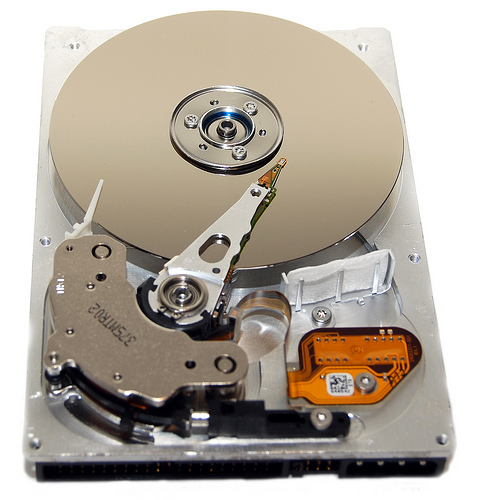Thai flood aids storage efficiency, SSDs

The recent flooding in Thailand and its flow-on effect on hard drive manufacturers may whip businesses into becoming more efficient with storage, and increase the adoption of solid-state drives (SSDs), according to Ideas International analysts.

(Hard Drive image by walknboston, CC BY 2.0)
Speaking with ZDNet Australia, Ideas International operations senior vice president Christian Ober said that the resultant shortage of hard drives would mean that enterprises would have to do more with what they had.
He said that currently, enterprises waste a lot of storage due to the need to wait until hard drives are provisioned, and because of the need to create duplicates of information for testing and developing new applications.
"People only have effectively 30 to 40 per cent storage utilisation. There's a lot of unused space for various reasons, and also lots of unnecessary duplicates. A lot of companies have a lot of core amount of primary storage, which they have got all their intellectual property of their company in — but then, they've so many test and dev copies of this data."
He said that this could be moved into the cloud, and data could be de-duplicated to save storage space, but the greatest benefits were likely to be experienced only by companies that had been thinking about it beforehand.
"If they weren't thinking about this beforehand, then by the time they go through that process, I would expect that the issue would be resolved."
Other ways that companies may try to become more efficient with storage include archiving to tape with greater frequency, or trading space for risk by reducing the amount of data backed up.
However, when it came to having to purchase storage, those unable to fulfil their orders may find themselves in the situation where solid-state drives might be an economically viable way to continue doing business.
"If vendors of laptops cannot get access to round, brown and spinning hard drives, and there's a cessation of the price decline, which in the past used to be about 30 per cent per annum per dollar per gigabyte, then there may be an opportunity or even a requirement to use non-volatile, solid-state drives just to be able to go through and fulfil your orders."
Although Ober thought that the situation would resolve itself within six to nine months, he said that companies should be considering stocking up or becoming more efficient.
"If I was an ASX 200 company and I normally buy storage at a quarter at a time, I'd be speaking with my storage sub-system supplier about pulling forward a couple of orders."